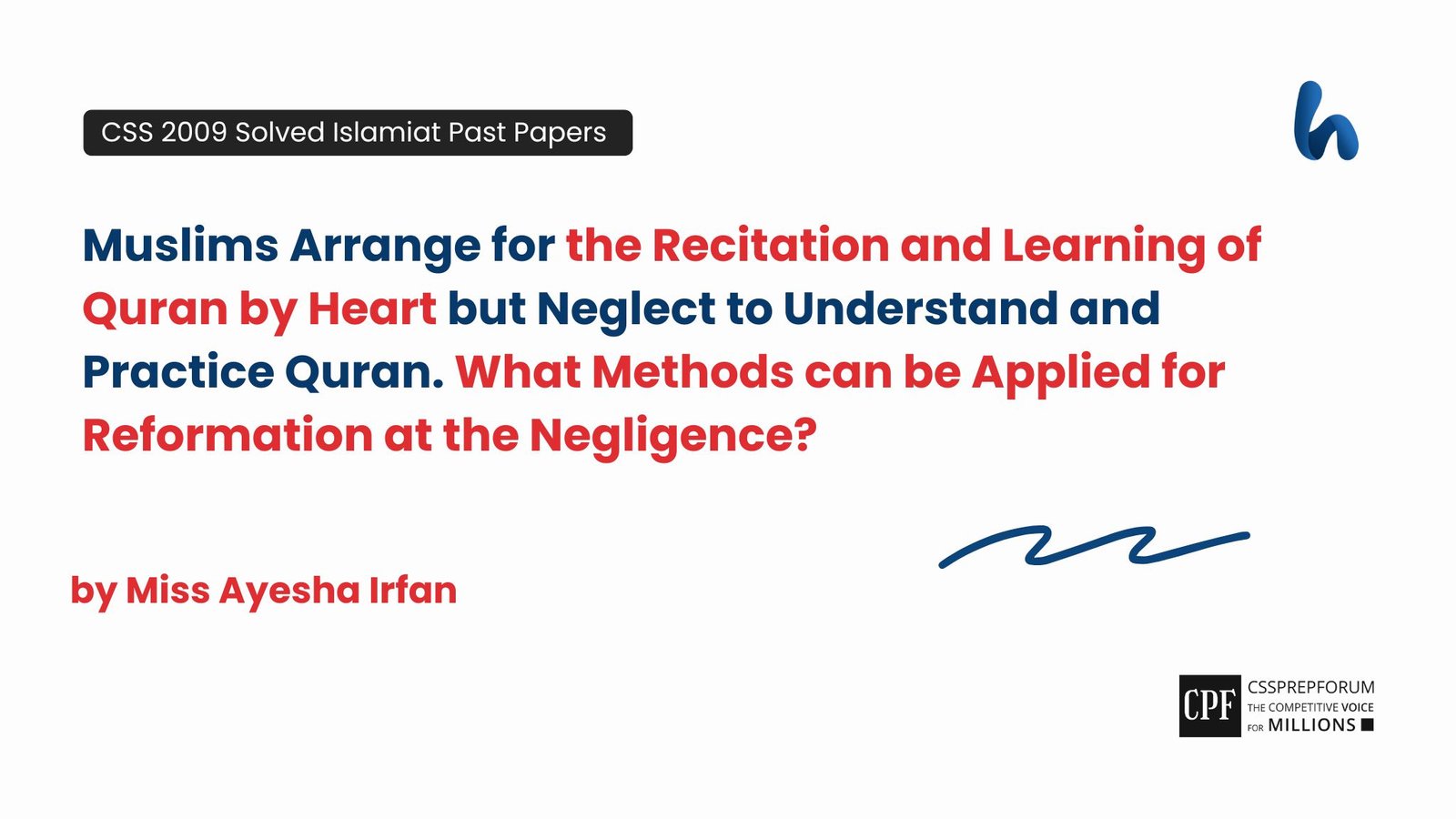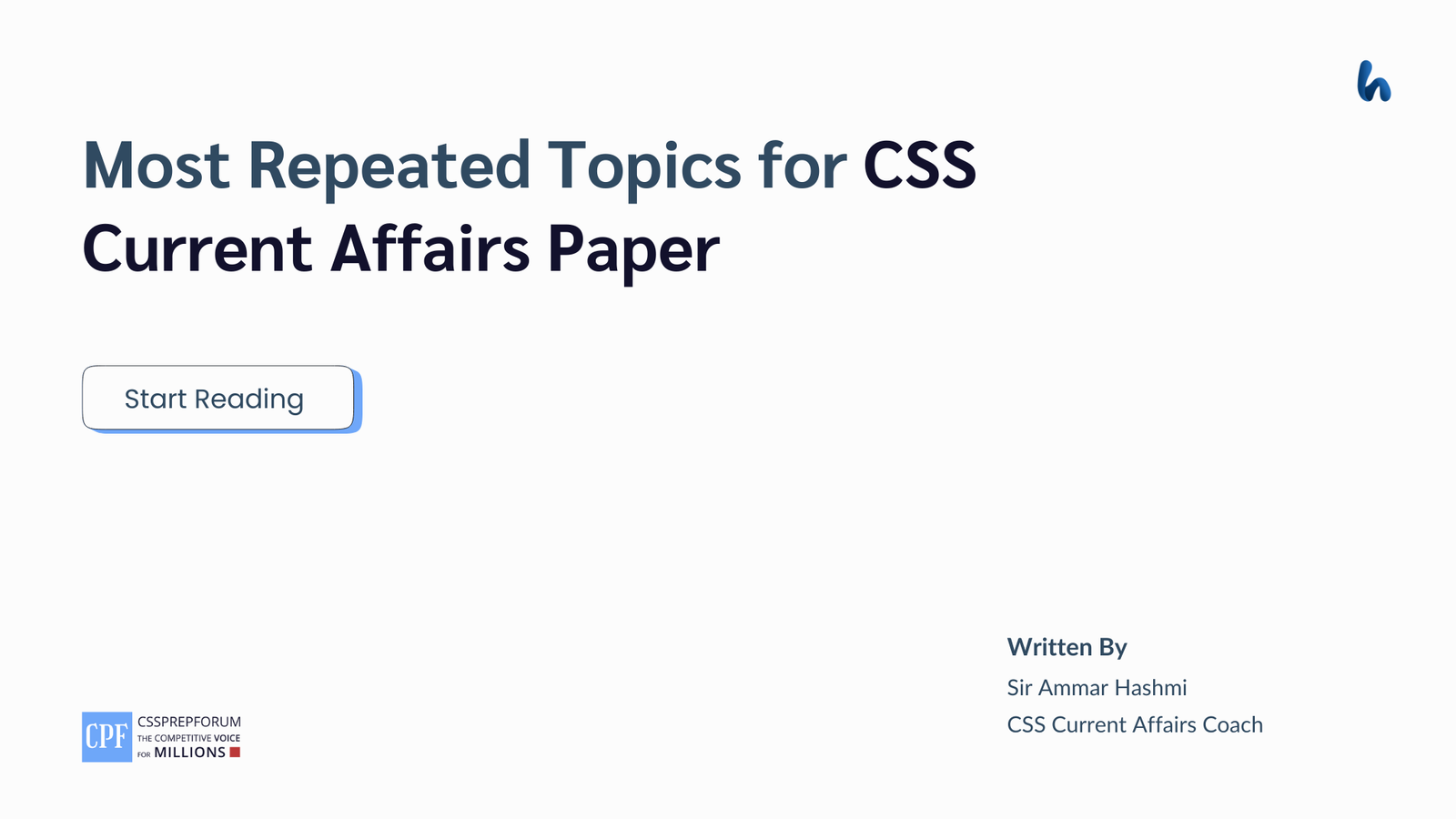Pakistan’s Foreign Policy Design | Daily Writeup | Opinions
The article is written by Captain Imran Khan, a student of Sir Syed Kazim Ali.

Outline
1-Introduction
Foreign policy’s role in assuring a country’s national interests is extensive and critically important. However, in Pakistan’s case, the foreign policy’s design based on emotions, feelings, and ideology has overpowered the country’s other concerns today. It has distorted the political culture and robbed the country of all its national and international achievements, which- undoubtedly- could be preserved by the adoption of pragmatic foreign policy measures, like propagation of regionalism, economic development, unity of the Muslim Ummah, and adoption of the policy goals ordained in the constitution.
2-What are Pakistan’s significant foreign policy objectives and determinants based on its national interests?
- ✓The preservation of the ideology of the state
- ✓The development of the friendly relations internationally: Regional Stability
- ✓The protection of national sovereignty and geo-strategic interests’ security: Defence and Nuclear Deterrence
- ✓The consolidation of economic cooperation and utilization of natural resources: Human Development and Economic sustainability
4-Why is Pakistan’s foreign policy the aftermath of emotions, feelings, and ideology, not its national interests?
- ✓Adverse historical experiences with the neighbouring countries
- ✓Sovereignty dilemma after colonialism
- ✓Identity conundrum due to clash of civilizations
5-What are its impacts on Pakistan?
- ✓Augmenting level of nuclear proliferation
- ✓Increasing perplexity in the diplomatic domains
- ✓The mushrooming growth of the country’s political extremism
6-What would be the suggestions to make a pragmatic foreign policy based on the national interests?
- ✓To prefer regionalism over zero-sum gains
- ✓To focus more on the country’s economic growth
- ✓To unite the disintegrated Muslim world
- ✓To follow the guidelines of foreign policy stringently
7-Critical Analysis
8-Conclusion

Answer to the Question
Foreign policy’s role in assuring a country’s national interests is wide and critically important. In Pakistan’s case, the foreign policy’s design as an outcome of emotions, feelings, and ideology has overpowered the country’s other concerns today. It has distorted the political culture and robbed the country of all its national and international achievements, which the adoption of pragmatic foreign policy measures could preserve. Marked with various reasons, historical adversaries with arch rivals, security apprehensions after decolonization, and identity crisis due to the clash of civilizations are some of them behind the formulation of Pakistan’s emotional foreign policy. As a result, nuclear proliferation, perplexed diplomatic relations, and interaction dilemmas due to political extremism have become the fate of the country, significantly tarnishing its image at the international level. However, adopting sagacious foreign policy measures in socio-economic and political domains would be fruitful for the stakeholders in formulating interest-based foreign policy.
“The purpose of foreign policy is not to provide an outlet for our sentiments of hope and indignation; it is to shape real events in a real world.”
(John F. Kennedy)
Moving forward, every internationally recognized state formulates its foreign policy by preferring its national interests while dealing with all the states in the global village. In contrast, Pakistan formulates its foreign policy based on its strategic culture that is based on its religion and emotions. Keeping in view the then atrocities and inequalities, Quaid-e-Azam devised the objectives and determinants of Pakistan’s foreign policy after the independence, which has also been ordained in the constitution of Pakistan:
- ✓First, the preservation of the Islamic ideology of the state, which originates in the boots of the Two Nation Theory, has been mentioned in Articles 2 and 31 of the constitution of Pakistan.
- ✓Second, Pakistan’s foreign policy aims to develop bonhomie relations with all the countries around the globe, especially her neighbours and the world’s hegemons.
- ✓Pakistan should protect its national sovereignty by strengthening its military power as mentioned in Article 39 of Pakistan’s Constitution and geo-strategic interests, like Kashmir and water as a natural resource.
- ✓Among many others, like the promulgation of social harmony as ordained in Articles 33, 34, and 38– the consolidation of economic cooperation at all fronts and proper utilization of natural resources- lastly- are some other foreign policy objectives ordained in Article 40 of the Constitution of Pakistan. Thus, the main foreign policy objectives and determinants given by Quaid-e-Azam, the founding father, explained in one of his speeches,
“Preservation of sovereign independence and territorial integrity, socio-economic development, maintenance of Islamic identity while progressing as a modern and forward-looking democratic nation pursuing in solidarity with the international community the cause of global peace and security and making Pakistan a strong factor of regional and global stability.”
Furthermore, Pakistan- unlike other states, formulated her foreign policy influenced by the past religious, social, and cultural emotions:
1-To begin with, Pakistan has borne the brunt of territorial subjugation and natural resources possession like hostilities owing to the hands of her two neighbours, India and Afghanistan, at the time of independence. Kashmir conflict, water dispute, and Durand-line issue are the glaring examples in the case, thus proving the maxim that Pakistan has formulated its policy based on sentiments.
2-Besides, after the long-lasting colonialism era, the tidal waves of sovereignty dilemma have also compelled Pakistan to become a conscious state. Nehru’s Leadership Model is best explained in words,” A strong and powerful India capable of projecting its power in the region and outside is the guarantee of security and stability of the whole South Asia”, explicitly showing his manifest destiny nature like the colonialists, justifying the statement that Pakistan has ever focused on its national interests while formulating its foreign policy.
3-Last but not least, the country faced an identity crisis due to the clash of civilizations in the South-Asian land during the freedom struggle, which instilled insecurity and fear in the hearts of the commoners and compelled the stakeholders to stand for their values and dignity. Seen in the military’s role, the country always prefers designing its foreign policy based on sentiments rather than national interests.
Taking a glance at its impacts on Pakistan, the country has plunged into the constant push-and-pull game of nuclear deterrence. Indeed, the guns versus butter factor has escalated so much that nuclear proliferation has become the order of the day, and Kashmir is the immediate nuclear flashpoint, raising the chances of a third world war in this multipolar world. Further, the diplomatic perplexities have increased to a greater extent. The prisoner’s dilemma of the stakeholders has been clearly shown in their decision-making, such as the United States (US) pressure on Pakistan, the Indo-Pacific tussle, the CPEC crisis, and the FATF grey-listing series. Among many other socio-economic internal strifes, the mushroom growth of the country’s political extremism has taken a toll, due to which the identity politics fumed with political bickering and victimization has now deteriorated the peace and order of the country.
However, the policymakers should follow some pragmatic measures to make the country’s foreign policy based on national interests instead of emotions. To begin with, they have to prefer regionalism rather than zero-sum games to make the country’s standing more firm on the international platform. For instance, policymakers must build cooperation among others via hosting SAARC meetings with productive roadmaps and prefer political engagements rather than rivalries. Next, the stakeholders should focus on boosting the country’s economic growth by implementing different strategies, such as strengthening its tourism and sports and diversifying its export base. Besides this, the Muslim world must unite in today’s world and rejuvenate the OIC’s role by ending its politicization, which is necessary to counter Islamophobia and identity crisis. Lastly, the strict implementation of Article 40, ordained in the Constitution of Pakistan, delineating the country’s foreign policy guidelines, is the need of the hour to make the country more stable and prosperous.
In a robust diagnosis, Pakistan’s foreign policy roadmap is always interwoven based on the emotional stage. Based on the constant colonial fear, the stakeholders only focus on idiosyncrasy, adversities with other states, and territorial sovereignty’s insecurity while framing their policy instead of mainstreaming it towards the country’s national interests and regional collaboration. However, careful, insightful steps can help in the formulation of productive foreign policy, and it can also promise the country a better future on all socio-economic and political grounds.
Making the country suffer on the wish and whims of a few idiosyncratic minds pushes it into the vortex of many other problems and declivities. So, the leaders holding the country’s reigns should focus on framing the foreign policy so that it helps the country raise itself at the regional and international level as an ally of everyone with a firm hold on its human development, economic sustainability, and political stability. Thus, running the state of affairs via these strategies will help the leaders formulate the foreign policy standing on the pillars of national interests only.

CSS Solved Past Papers’ Essays
Looking for the last ten years of CSS and PMS Solved Essays and want to know how Sir Kazim’s students write and score the highest marks in the essays’ papers? Then, click on the CSS Solved Essays to start reading them.
CSS Solved Essays
CSS Solved General Science & Ability Past Papers
Want to read the last ten years’ General Science & Ability Solved Past Papers to learn how to attempt them and to score high? Let’s click on the link below to read them all freely. All past papers have been solved by Miss Iqra Ali & Dr Nishat Baloch, Pakistan’s top CSS GSA coach having the highest score of their students. General Science & Ability Solved Past Papers












